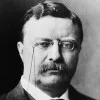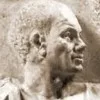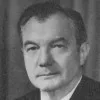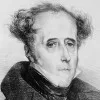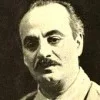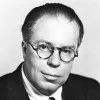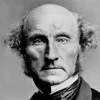We said there warn’t no home like a raft, after all. Other places do seem so cramped up and smothery, but a raft don’t. You feel mighty free and easy and comfortable on a raft.
Mark Twain (1835-1910) American writer [pseud. of Samuel Clemens]
The Adventures of Huckleberry Finn, ch. 18 (1884)
(Source)
Quotations about:
independence
Note not all quotations have been tagged, so Search may find additional quotes on this topic.
Self-restraint, self-mastery, common sense, the power of accepting individual responsibility and yet of acting in conjunction with others, courage and resolution — these are the qualities which mark a masterful people. Without them no people can control itself, or save itself from being controlled from the outside.
Theodore Roosevelt (1858-1919) American politician, statesman, conservationist, writer, US President (1901-1909)
Speech (1910-04-23), “Citizenship in a Republic [The Man in the Arena],” Sorbonne, Paris
(Source)
What we want to-day is what our fathers wrote down. They did not attain to their ideal; we approach it nearer, but have not reached it yet. We want, not only the independence of a State, not only the independence of a nation, but something far more glorious — the absolute independence of the individual. That is what we want. I want it so that I, one of the children of Nature, can stand on an equality with the rest; that I can say this is my air, my sunshine, my earth, and I have a right to live, and hope, and aspire, and labor, and enjoy the fruit of that labor, as much as any individual or any nation on the face of the globe.
Robert Green Ingersoll (1833-1899) American lawyer, agnostic, orator
Speech (1876-07-04), “Centennial Oration [The Declaration of Independence],” Peoria, Illinois
(Source)
To Virtue shame is all unknown;
She shines with honours of her own;
Nor, as the public smile or frown,
Takes office up, or lays it down.[Virtus, repulsae nescia sordidae,
intaminatis fulget honoribus
nec sumit aut ponit securis
arbitrio popularis aurae.]Horace (65-8 BC) Roman poet, satirist, soldier, politician [Quintus Horatius Flaccus]
Odes [Carmina], Book 3, # 2, l. 17ff (3.2.17-20) (23 BC) [tr. Gladstone (1894)]
(Source)
The bundle of rods, sometimes encircling an axe, is known as the fasces, and was the symbol of government power in Rome. The reference to the axe (securis) is from this symbol.
(Source (Latin)). Alternate translations:Vertue, that ne're repulse admits,
In taintless honours, glorious sits,
Nor takes, or leaveth Dignities,
Rais'd with the noise of vulgar cries.
[tr. Sir T. H.; ed. Brome (1666)]Vertue, unlearn'd to bear the base
And shameful baffle of disgrace,
Nor takes, nor quits the tottering Throne,
As fickle Crowds shall smile or frown;
Nor from their wavering Breath receives the place.
[tr. Creech (1684)]True Virtue never knows defeat:
Her robes she keeps unsullied still,
Nor takes, nor quits, her curule seat
To please a people's veering will.
[tr. Conington (1872)]Virtue, unknowing of base repulse, shines with immaculate honors; nor does she assume nor lay aside the ensigns of her dignity, at the veering of the popular air.
[tr. Smart/Buckley (1853)]Worth, all-indifferent to the spurns
Of vulgar souls profane,
The honours wears, it proudly earns,
Unclouded by a stain:
Nor grasps, nor lays the fasces down,
As fickle mobs may smile or frown.
[tr. Martin (1864)]Virtue ne'er knows of a defeat which brings with it disgrace;
The blazon of her honors ne’er the breath of men can stain;
Her fasces she nor takes nor quits
As veers the popular gale.
[tr. Bulwer-Lytton (1870)]Virtue knows not base rejection, is radiant with the purest honour, and neither takes, nor resigns, the axes at the breath of the popular will.
[tr. Elgood (1893)]Virtue, that knows not how to be overthrown,
Shines with unsullied honours impregnable.
Nor at the lawless people's bidding
Does she take up or lay down her honours.
[tr. Phelps (1897)]Virtue that knows not base defeat
Shines with untarnished honours,
Nor takes nor lays aside the Consul's axe
Upon decision by the popular whim.
[tr. Garnsey (1907)]True Worth knows not defeat, and still preserves
His robe unsullied by base Envy's stain;
He takes not nor quits power again,
As mob-mood sways and swerves.
[tr. Marshall (1908)]True worth, that never knows ignoble defeat, shines with undimmed glory, nor takes up nor lays aside the axes at the fickle mob’s behest.
[tr. Bennett (Loeb) (1912)]Virtue, secure from shameful rout,
With honours all-unstained shines out;
Nor takes, nor drops, authority
To suit the crowd's oft-changing cry.
[tr. Mills (1924)]Unconscious of mere loss of votes and shining
With honours that the mob's breath cannot dim,
True worth is not found raising or resigning
The fasces at the wind of popular whim.
[tr. Michie (1963)]Virtue has no concern with reputation,
Shines for its own sake, neither takes up
Arms nor lays them down
Because the mob tells it so.
[tr. Raffel (1983)]Virtue, rejecting everything that's sordid,
Shines with unblemished honor, nor takes up office
Nor puts it down persuaded by any shift
Of the popular wind.
[tr. Ferry (1997)]Virtue, unconscious of disgraceful defeat,
shines with unsullied honors
nor does she raise up or lay down the Fasces
at the mere murmuring of the mob.
[tr. Willett (1998)]Virtue, that’s ignorant of sordid defeat,
shines out with its honour unstained, and never
takes up the axes or puts them down
at the request of a changeable mob.
[tr. Kline (2015)]Courage, unaware of putrid defeat,
gleams with unblemished honours,
and neither takes nor places the axes
on the judgement of the common ear.
[tr. Wikisource (2021)]
Children aren’t coloring books. You don’t get to fill them with your favorite colors.
Khaled Hosseini (b. 1965) Afghan-American novelist, physician [ خالد حسینی]
The Kite Runner, ch. 3 [Rahim Khan] (2003)
(Source)
Nature never said to me: Do not be poor; still less did she say: Be rich; her cry to me was always: Be independent.
[La Nature ne m’a point dit: ne sois point pauvre; encore moins: sois riche; mais elle me crie: sois indépendant.]
Nicolas Chamfort (1741-1794) French writer, epigrammist (b. Nicolas-Sébastien Roch)
Products of Perfected Civilization [Produits de la Civilisation Perfectionée], Part 1 “Maxims and Thoughts [Maximes et Pensées],” ch. 4, ¶ 281 (1795) [tr. Mathers (1926)]
(Source)
(Source (French)). Alternate translations:Nature has not said to me: Be not poor; still less: Be rich. But she cries out to me: Be independent.
[tr. Hutchinson (1902)]Nature did not say to me, “Do not be poor”; still less, “Be rich”; but she cried out to me, “Be independent.”
[tr. Merwin (1969)]Nature did not tell me, "Do not be poor"; still less did it say "Be rich"; but it does cry to me: "Be independent."
[tr. Pearson (1973)]Nature never urged me, "Be not poor," much less, "Be rich." Instead, she shouts: "Be independent."
[tr. Dusinberre (1992)]Nature didn't tell me, "Don't be poor!"; and certainly didn't say: "Get rich!"; but she did shout: "Always be independent!"
[tr. Parmée (2003), ¶174]Nature didn't say to me "Never be poor."; still less "Be rich."; but it cried "Be independant."
[tr. Sinicalchi]
A statesman is a man that can do what the politician would like to do but can’t, because he is afraid of not being elected.
Children in a family are like flowers in a bouquet: there’s always one determined to face in an opposite direction from the way the arranger desires.
Marcelene Cox (1900-1998) American writer, columnist, aphorist
“Ask Any Woman” column, Ladies’ Home Journal (1956-09)
(Source)
Our Constitution relies on our electorate’s complete ideological freedom to nourish independent and responsible intelligence and preserve our democracy from that submissiveness, timidity and herd-mindedness of the masses which would foster a tyranny of mediocrity.
Robert H. Jackson (1892-1954) US Supreme Court Justice (1941-54), lawyer, jurist, politician
American Communications Assn. v. Douds, 339 U.S. 382, 442 (1950) [concurrence and dissent]
(Source)
CORIOLANUS:I’ll never
Be such a gosling to obey instinct; but stand,
As if a man were author of himself,
And knew no other kin.William Shakespeare (1564-1616) English dramatist and poet
Coriolanus, Act 5, sc. 3, l. 38ff (5.3.38-41) (c. 1608)
(Source)
Freedom is more precious than any gifts for which you may be tempted to give it up.
[Más preciosa es la libertad que la dádiva, porque se pierde.]
Baltasar Gracián y Morales (1601-1658) Spanish Jesuit priest, writer, philosopher
The Art of Worldly Wisdom [Oráculo Manual y Arte de Prudencia], § 286 (1647) [tr. Jacobs (1892)]
(Source)
(Source (Spanish)). Alternate translations:Liberty is more precious than all gifts: and to receive, is to lose it.>br?
[Flesher ed. (1685)]Independence is more precious, than any gift for which you might forfeit it.
[tr. Fischer (1937)]Freedom is more precious then the gift that makes us lose it.
[tr. Maurer (1992)]
If we have a decent sort of cat to begin with, and have always treated it courteously, and aren’t cursed with meddling, bullying natures, it’s a pleasure to let it do as it pleases. With children, this would be wicked and irresponsible, so raising children involves a lot of effort and friction. They need to be taught how to tie their shoes and multiply fractions, they need to be punished for pocketing candy in the grocery store, they need to be washed and combed and forced to clean up their rooms and say please and thank you.
A cat is our relief and our reward.
Civilization is the progress toward a society of privacy. The savage’s whole existence is public, ruled by the laws of his tribe. Civilization is the process of setting man free from men.
Ayn Rand (1905-1982) Russian-American writer, philosopher
The Fountainhead, ch. 18 [Roark] (1943)
(Source)
In pursuit of virtue, do not be afraid to overtake your teacher.
[當仁、不讓於師。]
[当仁不让于师]Confucius (c. 551- c. 479 BC) Chinese philosopher, sage, politician [孔夫子 (Kǒng Fūzǐ, K'ung Fu-tzu, K'ung Fu Tse), 孔子 (Kǒngzǐ, Chungni), 孔丘 (Kǒng Qiū, K'ung Ch'iu)]
The Analects [論語, 论语, Lúnyǔ], Book 15, verse 36 (15.36) (6th C. BC – 3rd C. AD) [tr. Leys (1997)]
(Source)
(Source (Chinese) 1, 2). Modern numbering is 15.36; exceptions (mostly after Legge) noted below. Alternate translations:Let every man consider virtue as what devolves on himself. He may not yield the performance of it even to his teacher.
[tr. Legge (1861), 15.35]Rely upon good-nature. 'Twill not allow precedence (even) to a teacher.
[tr. Jennings (1895), 15.35]When the question is one of morality, a man need not defer to his teacher.
[tr. Ku Hung-Ming (1898), 15.35]He upon whom a Moral duty devolves should not give way even to his Master.
[tr. Soothill (1910), 15.35]He who has undertaken the way of Virtue does not yield place to his Teacher.
[tr. Soothill (1910), 15.35, alternate]Manhood’s one's own, not leavable to teacher.
[tr. Pound (1933), 15.35]When it comes to Goodness one need not avoid competing with one's teacher.
[tr. Waley (1938), 15.35]He who is manhood at its best does not make way for the teacher.
[tr. Ware (1950)]When faced with the opportunity to practice benevolence do not give precedence even to your teacher.
[tr. Lau (1979)]When one is confronted by humaneness, one does not yield precedence to one's teacher.
[tr. Dawson (1993)]Confronting an act of humanity, do not yield the precedence even to your teacher.
[tr. Huang (1997)]One should not decline modestly to one's teacher when one faces the benevolent thing.
[tr. Cai/Yu (1998), # 420]In striving to be authoritative in your conduct (ren), do not yield even to your teacher.
[tr. Ames/Rosemont (1998)]With (ren), one need not defer to one's teacher.
[tr. Brooks/Brooks (1998)]Abide in Humanity, and you need not defer to any teacher.
[tr. Hinton (1998)]When it comes to being Good, defer to no one, not even your teacher.
[tr. Slingerland (2003)]In matters of humaneness, do not defer even to your teacher.
[tr. Watson (2007)]When encountering matters that involve the question of humaneness, do not yield even to your teacher.
[tr. Annping Chin (2014)]When confronted with a challenge of upholding Ren virtue or not, one should not yield -- not even to his own teacher.
[tr. Li (2020), 15.37]
Although I never found a church where I felt completely at home again, I made a new home in the world. I renewed my membership in the priesthood of all believers, who may not have as much power as we would like, but whose consolation prize is the freedom to meet God after work, well away from all centers of religious command, wherever God shows up.
Barbara Brown Taylor (b. 1951) American minister, academic, author
Leaving Church: A Memoir of Faith, Part 2 (2006)
(Source)
It’s curious that throughout our history together, with no apparent effort, people have been able to think of the cat simultaneously as the guardian spirit of the hearth and home, and as the emblem of freedom, independence, and rootlessness.
It is easy when you’ve been hurt by love to give it up as a bad job and make independence your new god, taking the love you had to give and turning it in upon yourself. And most of us have had to protect ourselves so much at times that we’ve given up the high road and taken the low. But independence carried to the furthest extreme is just loneliness and death, nothing more than another defense, and there is no growth in it, only a safe harbor for a while. The answer doesn’t lie in learning how to protect ourselves from life — it lies in learning how to become strong enough to let a bit more of it in.
Merle Shain (1935-1989) Canadian journalist and author
When Lovers Are Friends, ch. 1 (1978)
(Source)
It is all very well to talk about being the captain of your soul. It is hard, and only a few heroes, saints, and geniuses have been the captains of their souls for any extended period of their lives. Most men, after a little freedom, have preferred authority with the consoling assurances and the economy of effort it brings.
Walter Lippmann (1889-1974) American journalist and author
A Preface to Morals, ch. 1, sec. 3 (1929)
(Source)
People who wish to salute the free and independent side of their evolutionary character acquire cats. People who wish to pay homage to their servile and salivating roots own dogs.
Anna Quindlen (b. 1953) American journalist, novelist
Article (1991-04-07), “Mr. Smith Goes to Heaven,” New York Times
(Source)
Part of an obituary for her dog, Jason Oliver C. Smith. Reprinted in Thinking Out Loud (1993).
The domestic cat is a contradiction. No animal has developed such an intimate relationship with mankind, while at the same time demanding and getting such independence of movement and action.
Desmond Morris (b. 1928) English zoologist, ethologist, author
Catwatching, Introduction (1986)
(Source)
I love in the cat that independent and almost ungrateful temper which prevents him from attaching himself to anyone; the indifference with which he passes from the salon to the housetop. When you caress it, it stretches itself out and arches its back, indeed; but that is caused by physical pleasure, not, as in the case of the dog, by a silly satisfaction in loving and being faithful to a master who returns thanks in kicks. The cat lives alone, has no need of society, does not obey except when it likes, and pretends to sleep that it may see the more clearly, and scratches everything that it can scratch.
[J’aime dans le chat, ce caractère indépendant et presque ingrat qui le fait ne s’attacher à personne, cette indifférence avec laquelle il passe des salons à ses gouttières natales; on le caresse, il fait gros dos; mai c’est un plaisir physique qu’il éprouve, et non, comme le chien, une niaise satisfaction d’aimer et d’être fidèle à un maître qui l’en remercie à coups de pied. Le chat vit seul, il n’a nul besoin de société, il n’obéit que quand il veut, fait l’endormi pour mieux voir, et griffe tout ce qu’il peut griffer.]
François-René de Chateaubriand (1768-1848) French writer, politican, diplomat
In Comte de Marcellus, Chateaubriand et son Temps (1859)
(Source)
That is the whole trouble with being a heretic. One must usually think out everything for oneself.
Aubrey Menen (1912-1989) British writer, novelist, satirist, theatre critic
The Duke of Gallodoro (1952)
(Source)
He who would acquire fame must not show himself afraid of censure. The dread of censure is the death of genius.
William G. Simms (1806-1870) American writer and politician
Egeria, Or Voices of Thought and Counsel, for the Woods and Wayside, “Ambition” (1853)
(Source)
Choose your pleasures for yourself, and do not let them be imposed upon you. Follow nature, and not fashion; weigh the present enjoyment of your pleasures against the necessary consequences of them, and then let your own common-sense determine your choice.
Lord Chesterfield (1694-1773) English statesman, wit [Philip Dormer Stanhope]
Letter to his son, #119 (27 Mar 1747)
(Source)
A great marriage is like two trees standing tall, side by side. Their branches intertwine so beautifully, so gracefully, they almost become one, yet they remain two. Standing together, they are strong, beautiful and better able to withstand the high winds of storms that come now and then. They are separate living things, yet so interdependent, growing more beautifully entwined year after year. Providing shade, comfort, and safety for each other and all who walk their way.
(Other Authors and Sources)
Carl Walter, Grand Prize winner, “Dr. Mardy’s Quotes of the Week” Marriage Metaphor Competition (2015)
(Source)
To be poor and independent, is very nearly an impossibility.
William Cobbett (1763-1835) English politician, agriculturist, journalist, pamphleteer
Advice to Young Men and (Incidentally) to Young Women, Letter 2, #54 (1829)
(Source)
You cannot bring about prosperity by discouraging thrift.
You cannot help small men by tearing down big men.
You cannot strengthen the weak by weakening the strong.
You cannot lift the wage earner by pulling down the wage payer.
You cannot help the poor man by destroying the rich.
You cannot keep out of trouble by spending more than your income.
You cannot further the brotherhood of man by inciting class hatred.
You cannot establish security on borrowed money.
You cannot build character and courage by taking away men’s initiative and independence.
You cannot help men permanently by doing for them what they could and should do for themselves.William J. H. Boetcker (1873-1962) German-American religious leader, author, public speaker [William John Henry Boetcker]
“The Industrial Decalogue” (1916)
Often referred to as "The Ten Cannots," and also often misattributed to Abraham Lincoln.
Your children are not your children.
They are the sons and daughters of Life’s longing for itself.
They come through you but not from you,
And though they are with you yet they belong not to you.
You may give them your love but not your thoughts,
For they have their own thoughts.
You may house their bodies but not their souls,
For their souls dwell in the house of tomorrow, which you cannot visit, not even in your dreams.
You may strive to be like them, but seek not to make them like you.
For life goes not backward nor tarries with yesterday.Kahlil Gibran (1883-1931) Lebanese-American poet, writer, painter [Gibran Khalil Gibran]
“On Children,” The Prophet (1923)
(Source)
How much trouble he avoids who does not look to see what his neighbor says or does or thinks, but only to what he does himself, that it may be just and pure.
[Ὅσην εὐσχολίαν κερδαίνει ὁ μὴ βλέπων τί ὁ πλησίον εἶπεν ἢ ἔπραξεν ἢ διενοήθη, ἀλλὰ μόνον τί αὐτὸς ποιεῖ, ἵνα αὐτὸ τοῦτο δίκαιον ᾖ καὶ ὅσιον ἢ † κατὰ τὸν ἀγαθὸν.]
Marcus Aurelius (AD 121-180) Roman emperor (161-180), Stoic philosopher
Meditations, Book 4, #18 [tr. Long (1862)]
(Source)
Original Greek. Alternate translations:How much time and leisure doth he gain, who is not curious to know what his neighbour hath said, or hath done, or hath attempted, but only what he doth himself, that it may be just and holy?
[tr. Casaubon (1634), #15]What a great deal of Time and Ease that Man gains who is not troubled with the Spirit of Curiosity: Who lets his Neighbor's Thoughts and Behavior alone, confines his Inspections to himself' And takes care of the Points of Honesty and Conscience.
[tr. Collier (1701)]What a great deal of time and ease that man gains who lets his neighbor's words, thoughts, and behavior alone, confines his inspections to himself, and takes care that his own actions are honest and righteous.
[tr. Zimmern (1887)]How much time he gains who does not look to see what his neighbor says or does or thinks, but only at what he does himself, to make it just and holy.
[tr. Morgan, in Bartlett's Familiar Quotations (1894)]How much valuable time may be gained by not looking at what some neighbor says or does or thinks, but only taking care that our own acts are just and holy.
[tr. Rendall (1898 ed.)]What richness of leisure does he gain who has no eye for his neighbour's words or deeds or thoughts, but only for his own doings, that they be just and righteous!
[tr. Haines (1916)]How great a rest from labour he gains who does not look to what his neighbour says or does or thinks, but only to what he himself is doing, in order that exactly this may be just and holy, or in accord with a good man's conduct.
[tr. Farquharson (1944); he notes "The text is faulty and the sense obscure."]What ease of mind a person gains when he keeps his eye not on what his neighbor has said or done or thought but only on what he himself does, to ensure that it is just or holy or matches what a good person does.
[tr. Gill (2014)]
It is easy in the world to live after the world’s opinion; it is easy in solitude to live after our own; but the great man is he who, in the midst of the crowd, keeps with perfect sweetness the independence of solitude.
A necessary quality for the attainment of individuality is the ability to tolerate some degree of loneliness in the sense of independent adherence to values that those around you will not support.
If ever there’s a tomorrow where we’re not together, there is something you must remember. You’re braver than you believe, and stronger than you seem, and smarter than you think.
A. A. Milne (1882-1956) English poet and playwright [Alan Alexander Milne]
(Misattributed)
(Source)
Christopher Robin to Pooh Bear. The quotation is broadly attributed to Milne and Winnie the Pooh, but is actually from the 1997 Disney video Pooh's Grand Adventure: The Search for Christopher Robin, written by Carter Crocker and Karl Geurs, based on the characters created by Milne.
It’s all about money, not freedom, y’all, okay? Nothing to do with fuckin’ freedom. If you think you’re free, try going somewhere without fucking money, okay?
The way chosen by the United States was plainly marked by a few clear precepts, which govern its conduct in world affairs.
First: No people on earth can be held, as a people, to be enemy, for all humanity shares the common hunger for peace and fellowship and justice.
Second: No nation’s security and well-being can be lastingly achieved in isolation but only in effective cooperation with fellow-nations.
Third: Any nation’s right to form of government and an economic system of its own choosing is inalienable.
Fourth: Any nation’s attempt to dictate to other nations their form of government is indefensible.
And fifth: A nation’s hope of lasting peace cannot be firmly based upon any race in armaments but rather upon just relations and honest understanding with all other nations.
When things get so balled up that the people of a country got to cut loose from some other country, and go it on their own hook, without asking no permission from nobody, excepting maybe God Almighty, then they ought to let everybody know why they done it, so that everybody can see they are not trying to put nothing over on nobody. All we got to say on this proposition is this: first, me and you is as good as anybody else, and maybe a damn sight better; second, nobody ain’t got no right to take away none of our rights; third, everyman has got a right to live, to come and go as he pleases, and to have a good time whichever way he likes, so long as he don’t interfere with nobody else. That any government that don’t give a man them rights ain’t worth a damn; also, people ought to choose the kind of government they want themselves, and nobody else ought to have no say in the matter. That whenever any government don’t do this, then the people have got a right to give it the bum’s rush and put in one that will take care of their interests.
H. L. Mencken (1880-1956) American writer and journalist [Henry Lewis Mencken]
“Essay in American,” Baltimore Evening Sun (1921-11-07)
(Source)
Rewriting the beginning of the Declaration of Independence in the time's parlance.
I stand and rejoice every time I see a woman ride by on a wheel. It gives her a feeling of freedom, self-reliance and independence. The moment she takes her seat she knows she can’t get into harm while she is on her bicycle, and away she goes, the picture of free, untrammeled womanhood.
My manner of thinking, so you say, cannot be approved. Do you suppose I care? A poor fool indeed is he who adopts a manner of thinking for others! My manner of thinking stems straight from my considered reflections; it holds with my existence, with the way I am made. It is not in my power to alter it; and were it, I’d not do so.
It is easy in the world to live after the world’s opinion; it is easy in solitude to live after our own. But the great man is he who in the midst of the crowd keeps with perfect sweetness the independence of solitude.
Political sovereignty is but a mockery without the means of meeting poverty and illiteracy and disease. Self-determination is but a slogan if the future holds no hope.
John F. Kennedy (1917-1963) US President (1961-63)
Speech, UN General Assembly (25 Sep 1961)
(Source)
He has waged cruel war against human nature itself, violating it’s most sacred rights of life & liberty in the persons of a distant people who never offended him, captivating & carrying them into slavery in another hemisphere, or to incur miserable death in their transportation thither. this piratical warfare, the opprobrium of infidel powers, is the warfare of the christian king of Great Britain. determined to keep open a market where MEN should be bought & sold, he has prostituted his negative for suppressing every legislative attempt to prohibit or to restrain this execrable commerce and that this assemblage of horrors might want no fact of distinguished die, he is now exciting those very people to rise in arms among us, and to purchase that liberty of which he has deprived them, by murdering the people upon whom he also obtruded them; thus paying off former crimes committed against the liberties of one people, with crimes which he urges them to commit against the lives of another.
Thomas Jefferson (1743-1826) American political philosopher, polymath, statesman, US President (1801-09)
Document (1776-06), “Declaration of Independence,” original draft
(Source)
This anti-slavery clause was included in the submission to the Continental Congress. It was removed from the Declaration at the behest of the delegation from South Carolina, as a requirement for their vote.
Your assumptions are your windows on the world. Scrub them off every once in a while, or the light won’t come in. If you challenge your own, you won’t be so quick to accept the unchallenged assumptions of others. You’ll be a lot less likely to be caught up in bias or prejudice or be influenced by people who ask you to hand over your brains, your soul, or your money because they have everything all figured out for you.
Alan Alda (b. 1936) American actor [b. Alphonso Joseph D'Abruzzo]
Things I Overheard While Talking to Myself, ch. 2 “Lingering at the Door” (2007)
(Source)
Originally given at the commencement speech at Connecticut College in May, 1980, where his daughter Eve was graduating.
All you learn and all you can read will be of little use to you if you do not think and reason upon it yourself. One reads to know other people’s thoughts, but if we take them upon trust, without examining and comparing them with our own, it is really living upon other people’s scraps or retailing other people’s goods. To know the thoughts of others, is of use, because it suggests thoughts to one’s self, and helps one to form a judgment; but to repeat other people’s thoughts, without considering whether they are right or wrong, is the talent only of a parrot, or at most a player.
Lord Chesterfield (1694-1773) English statesman, wit [Philip Dormer Stanhope]
Letter to his son, #67, “Thursday” (1740-41)
(Source)
CYNICAL CAT: Little one, I would like to see anyone — prophet, king or God — persuade a thousand cats to do anything at the same time.
Neil Gaiman (b. 1960) British author, screenwriter, fabulist
Sandman, Book 3. Dream Country, # 18 “A Dream of a Thousand Cats” (1990-08)
(Source)
The first thing I want to teach is disloyalty. … This will beget independence — which is loyalty to one’s best self and principles, and this is often disloyalty to the general idols and fetishes.
The Second Day of July 1776, will be the most memorable Epocha, in the History of America. — I am apt to believe that it will be celebrated, by succeeding Generations, as the great anniversary Festival. It ought to be commemorated, as the Day of Deliverance by solemn Acts of Devotion to God Almighty. It ought to be solemnized with Pomp and Parade, with Shews, Games, Sports, Guns, Bells, Bonfires and Illuminations from one End of this Continent to the other from this Time forward forever more.
John Adams (1735-1826) American lawyer, Founding Father, statesman, US President (1797-1801)
Letter to Abigail Adams (1776-07-03)
(Source)
The Colonial Congress approved of the Independence Resolution on 2 July. The final agreement on the Declaration, and its signing, was on 4 July.
The man who does not do his own thinking is a slave, and is a traitor to himself and to his fellow-men.
Robert Green Ingersoll (1833-1899) American lawyer, agnostic, orator
“The Liberty of Man, Woman, and Child” (1877)
(Source)
Whatever issue may come before me as President — on birth control, divorce, censorship, gambling or any other subject — I will make my decision in accordance with these views, in accordance with what my conscience tells me to be the national interest, and without regard to outside religious pressures or dictates. And no power or threat of punishment could cause me to decide otherwise. But if the time should ever come — and I do not concede any conflict to be even remotely possible — when my office would require me to either violate my conscience or violate the national interest, then I would resign the office; and I hope any conscientious public servant would do the same.
John F. Kennedy (1917-1963) US President (1961-63)
Speech, Greater Houston Ministerial Association (12 Sep 1960)
(Source)
I do not speak for my church on public matters — and the church does not speak for me.
John F. Kennedy (1917-1963) US President (1961-63)
Speech, Greater Houston Ministerial Association (12 Sep 1960)
(Source)
The only part of the conduct of any one, for which he is amenable to society, is that which concerns others. In the part which merely concerns himself, his independence, is, of right, absolute. Over himself, over his own body and mind, the individual is sovereign.
John Stuart Mill (1806-1873) English philosopher and economist
On Liberty, ch. 1 “Introductory” (1859)
(Source)
Keep close behind me. Let them say their say.
Stand straight, a mighty tower unwavering,
its height unshaken by such breaths of wind.[Vien dietro a me, e lascia dir le genti:
sta come torre ferma, che non crolla
già mai la cima per soffiar di venti.]Dante Alighieri (1265-1321) Italian poet
The Divine Comedy [Divina Commedia], Book 2 “Purgatorio,” Canto 5, l. 13ff (5.13-15) [Virgil] (1314) [tr. Kirkpatrick (2007)]
(Source)
Virgil scolding Dante for slowing down when other spirits are pointing and murmuring about him having a shadow, unlike them.
(Source (Italian)). Alternate translations:Can murmurs move you? Let them whisper on,
And bid your Reason firmly keep its throne,
and o'er the fortress of the mind preside.
[tr. Boyd (1802), st. 2]Come after me, and to their babblings leave
The crowd. Be as a tower, that, firmly set,
Shakes not its top for any blast that blows!
[tr. Cary (1814)]Come thou behind me, let the people talk;
Stand like a steadfast tower, whose lofty crest
Ne'er quaked obedient to the rocking blast.
[tr. Bannerman (1850)]Come after me, and let the people talk;
Stand like a steadfast tower, that never wags
Its top for all the blowing of the winds;
[tr. Longfellow (1867)]Come behind me, and let the folk talk; stand like a firm tower which never shakes its top for blast of winds.
[tr. Butler (1885)]Follow thou me, and let the people talk:
Stand like a solid tower, that doth not bow
Its crest at any time, though wild winds stalk.
[tr. Minchin (1885)]Come after me, and let the people talk. Stand as a tower firm, that never wags its top for blowing of the winds.
[tr. Norton (1892)]Follow me and let the people talk; stand thou as a firm tower which never shakes its summit for blast of winds.
[tr. Okey (1901)]Come after me and let the people talk. Stand like a firm tower that never shakes its top for blast of wind.
[tr. Sinclair (1939)]Follow behind me and let them talk their fill:
Stand like a tower whose summit never shakes
For the wind's blowing, and stays immovable.
[tr. Binyon (1943)]Follow thou me, and let the people chatter;
Stand as a tower stands firm in time of trouble,
Nor bends its head, though winds may bawl and batter.
[tr. Sayers (1955)]Follow my steps, though all such whisper of you:
be as a tower of stone, its lofty crown
unswayed by anything the winds may do.
[tr. Ciardi (1961)]Follow me and let the people talk.
Stand as a firm tower which never
shakes its summit for blast of winds.
[tr. Singleton (1973)]Keep up with me and let the people talk!
Be like a solid tower whose brave height
remains unmoved by all the winds that blow.
[tr. Musa (1981)]Come on behind me, let those people talk:
Stand like a solid tower which does not shake
Its top whatever winds are blowing on it.
[tr. Sisson (1981)]Come, follow me, and let these people talk:
stand like a sturdy tower that does not shake
its summit though the winds may blast.
[tr. Mandelbaum (1982)]Come after me, and let the people talk:
be like a strong tower whose top never falls,
however hard the winds may blow.
[tr. Durling (2003)]Follow me close behind, and let the people talk: stand like a steady tower, that never shakes at the top, in the blasts of wind.
[tr. Kline (2002)]Just follow me and let the people talk.
Why can't you be like a sturdy tower
that does not tremble in the fiercest wind.
[tr. Hollander/Hollander (2007)]Just follow me and let the people talk:
Stand steady as a tower, which doesn't shake
Its top whenever the winds decide to blow.
[tr. Raffel (2010)]
Karl Marx paraphrased the first line of this tercet in the conclusion of his Author's Preface to the First Edition of Das Kapital (1867), crediting Dante:Every opinion based on scientific criticism I welcome. As to the prejudices of so-called public opinion, to which I have never made concessions, now as aforetime the maxim of the great Florentine is mine: "Segui il tuo corso, e lascia dir le genti."
Which reads something like "Follow your own course, and let the people talk." The phrase is given in Italian even in the original German edition.
Each man must use his own judgement.
[Suo cuique iudicio est utendum.]
Marcus Tullius Cicero (106-43 BC) Roman orator, statesman, philosopher
De Natura Deorum, Book 3, ch. 1 [tr. Rackham (1933)]
(Source)


